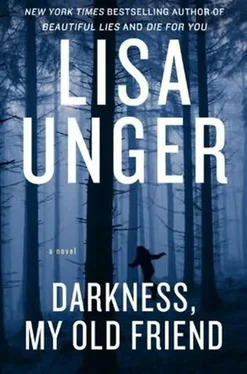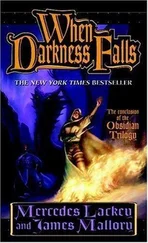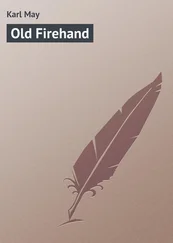“I don’t know what you mean by that,” he said.
She walked down a long hallway past a staircase and motioned for him to follow. As he did, he noticed the shabby condition of the house-the chipped baseboards, hairline cracks in the wall, flooring in the kitchen coming up, a water stain in the ceiling. If he’d been her friend, her neighbor, or if he’d been taking care of her house while she was away, he’d offer to do the repairs or mention something that might have been beyond his abilities, suggest that she have it looked at. He’d already amassed a book of contacts-carpenters, painters, plumbers-people he knew and trusted, many of whom he’d known since childhood. But he reminded himself that she wasn’t any of those things and that he should just keep his mouth shut.
In the kitchen he sat at the table where she motioned for him to do so. The first thing he noticed was the row of medications on the windowsill. The bottles were too far for him to see. But there were too many of them, maybe ten little plastic tubes of varying size with green caps. She sat across from him and blocked his line of sight.
“After I came to see you, I saw her running.”
He tried to keep the smirk off his face. “Really. Just jogging by?”
She gave him a flat blink to show that she didn’t find him amusing. “Running through the woods. Afraid. Someone chasing.”
“Uh-huh,” he said. A dismissive, condescending sound, Maggie would accuse. And she’d be right. “I was the detective on her case. It was one of my first. In fact, I’d say it was my first major case.”
“And you never solved it. That must have stuck in your craw.”
It hadn’t, really. He’d never been one to let the job eat at him. He said as much. “Some people don’t want to be found,” he told her. “It was a lot easier to disappear in 1987 than it would be in 2011.”
“What do you remember?” she asked. He was surprised by the question. After all, he’d come here to question her . But he didn’t mind talking about it.
“I remember that she was a bombshell. Really gorgeous. Too gorgeous for The Hollows. Too gorgeous for Mack Holt. He said she ran off, that he’d suspected she had a boyfriend, and that one night the other guy came and picked her up in a black Mercedes. Holt said she had aspirations to act and model.”
He remembered the small house, the boy lurking at the top of the stairs, the smell of cigarette smoke. Holt hadn’t reported her missing. It had been a friend from her part-time job at the library.
Jones remembered that he’d thought it strange that she hadn’t taken any of her jewelry. He wasn’t sure why that struck him. But there had been a leather box filled with all manner of baubles, some cheap and gaudy, some tasteful and on the more expensive side. It would have been easy to grab the box and shove it into her suitcase. But she didn’t. Most of her clothes still hung in the closets, organized by color. A few empty hangers waited. Her shoes were in a careful row, a couple of pairs clearly missing. Holt claimed that she’d packed a small bag and announced she was leaving, told him that she’d come back for the children when she was settled. She was sorry. But she couldn’t live the life he wanted her to live, a hausfrau, the same day after day. She didn’t even love him anymore. Holt had sent the baby girl to stay with his sister, who lived just a few miles away. He couldn’t take care of her during the week, what with work and all. Michael was old enough to take care of himself after school. Some of this Jones remembered, some of it had come back to him as he read his own notes. He told all of it to Eloise.
Eloise shook her head.
“No,” she said. “That’s not how it was. There might have been a boyfriend, but he didn’t come for her that night.”
“So what happened, then?” He decided to play along. Why not?
“I don’t know, but whatever it was had her running through the woods in the black of night. That rarely ends well.”
“So she’s dead.”
“Maybe,” she said. “Maybe not.”
“But if you’re seeing her, doesn’t that mean she’s gone, crossed over, whatever?”
She offered him a weak smile. “You’re talking like a believer. You think I speak to dead people.”
“Don’t you?”
“I told you that I’m like a radio receiver. I pick up energies, frequencies. Sometimes images, sometimes sounds, sometimes I see people. Always women or girls. Always lost, usually wronged or injured in some way. Not always dead. One girl was found alive in a well. All I could hear was her breathing and the dripping water. She was in shock. Another was being kept in a shed; I just heard her screaming for help over and over. Finally someone else did, too.”
“And so in the case of Marla Holt, last night you had a vision of her running through the woods. She was afraid.”
“And sad, so terribly sad. I heard voices, too. Male voices shouting.”
“More than one?”
“Yes. Don’t ask me what they were calling. I couldn’t make it out.”
“Of course not,” he said. Why would she have heard anything that could actually help ?
“Did you know Marla Holt back then?” he asked. He already knew the answer. It was just his way of coming in soft.
She answered slowly, reluctant. “I baby-sat for Michael and Cara occasionally. Sometimes I cleaned for Marla. That’s what I did back then to pay the mortgage. That was a couple of years before she disappeared.”
“What do you remember about her?”
“I remember that she was very sweet, a loving mother. Not everyone takes to motherhood, you know. Not everyone likes it. She doted on those children, adored every minute she had with them. She’d call me so that she could get out and get some exercise. She was always very worried about her weight. But she was lovely. You were right. Too lovely for this place.”
She said it with more gravity than Jones thought he had. He’d meant that Marla Holt could have been in Hollywood or New York City. Eloise didn’t mean it that way.
“She did love her husband,” Eloise went on. “At least she did when I knew her. She was always chatting on about him. I think he was some kind of scientist, had won awards, was a professor somewhere out of town.”
“He was a geologist,” said Jones. “Taught at the college.”
“That’s right,” said Eloise. A little alarm chirped on her wrist-watch. She squinted down at it, and then she got up to walk over to the windowsill. She selected one of the bottles and tapped out two pills, filled a glass with water, and swallowed them down.
“Everything all right?” asked Jones.
“Just getting old,” said Eloise.
Jones didn’t buy that that was all it was, but it wasn’t any of his business. He watched her put the bottle back in its row and stare at it for a second.
“So is the Hollows PD reopening the case?” asked Eloise.
Jones shrugged. “I’m not sure what their plans are. Chuck Ferrigno asked me to go over my old files, talk to you and Ray Muldune, see if I remembered anything that asked for looking into again.”
“And do you?”
“I remembered that I thought the neighbor was holding something back. I thought it was odd that Marla Holt didn’t take her jewelry. It seemed like she’d devoted a lot of energy to collecting and organizing it. It would have been easy to take.”
She raised her eyebrows at him. “More odd that she didn’t take her children, don’t you think? Women don’t usually leave without their children.”
“Unless there’s a new boyfriend, not the stepfather kind.”
He tilted back in his chair a bit. On the job he’d seen plenty of women abandon their children. Babies left at the police station, mothers sneaking out of the maternity ward at the hospital, once a baby left in an open locker at the bus station. Probably Abigail would have left him if she weren’t so afraid of being alone, if she’d had anywhere at all to go. Not every woman was a natural mother; he was surprised more people didn’t realize that.
Читать дальше












